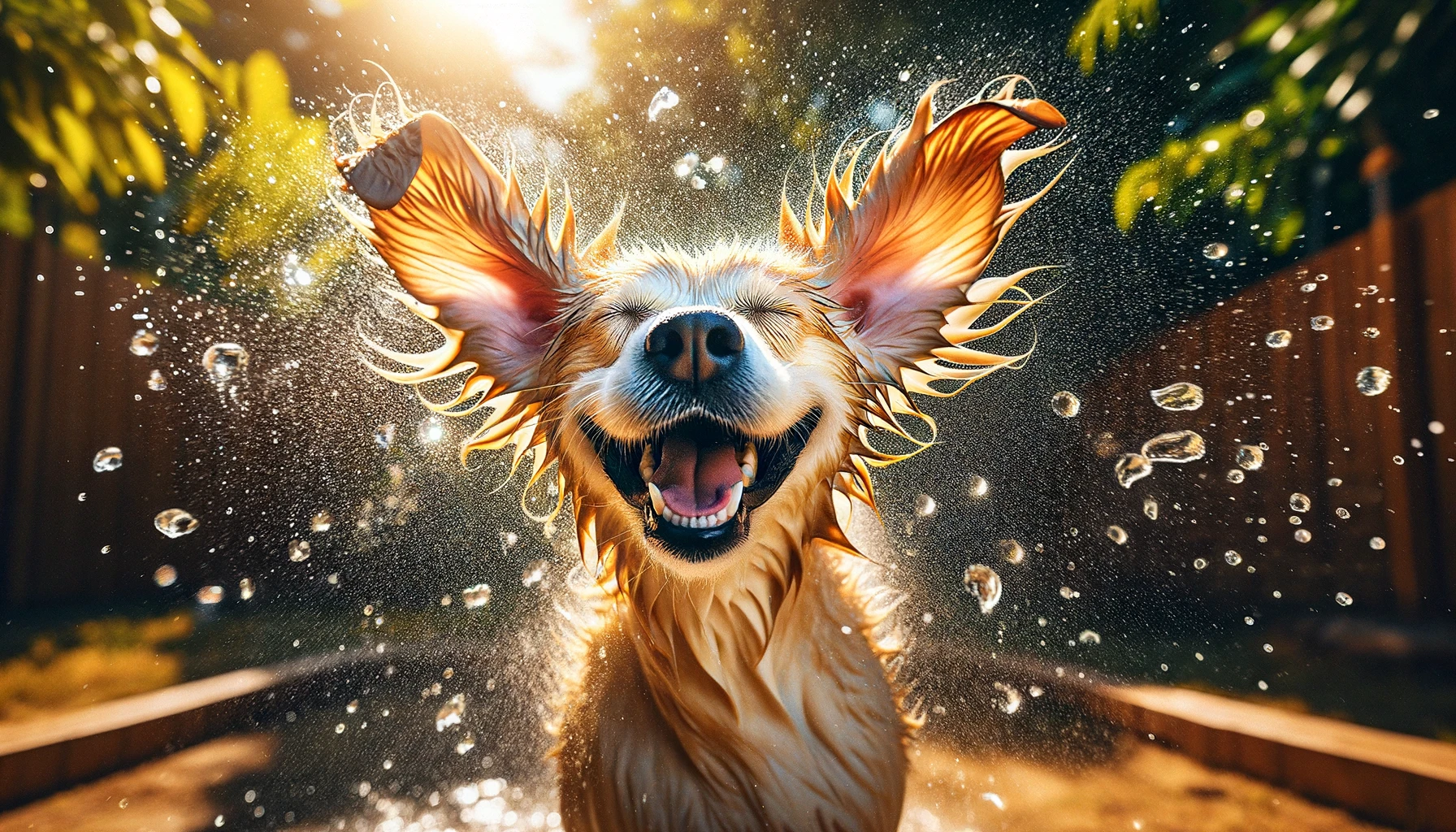In this article, we explore the potential reasons behind the black coloration of a dog's testicles. Understanding the factors that contribute to this pigmentation can help pet owners ensure the health and well-being of their furry companions.
We examine the role of melanin production, breed-specific characteristics, skin conditions, hormonal imbalances, and age-related changes.
By providing valuable insights and knowledge, this article aims to assist readers in making informed decisions about their dog's testicular health.
Key Takeaways
- Melanin production and hormonal imbalances can cause black discoloration of the testicles.
- Skin infections can lead to inflammation and hyperpigmentation in the testicles.
- Different dog breeds have variations in testicle pigmentation.
- Abnormal changes in testicle color should be evaluated by a veterinarian to determine underlying health issues.
Melanin Production in Dogs
Melanin production in dogs is a complex biological process influenced by genetic factors and regulated by various enzymes and hormones. Melanin is the pigment responsible for the coloration of the skin, hair, and eyes in animals, including dogs. It plays a crucial role in protecting the skin from harmful ultraviolet (UV) radiation and determining the color of various body parts, including the testicles.
The regulation of melanin in dogs involves several factors. One important factor is the genetic makeup of the dog. Different genes control the production, distribution, and type of melanin in the body. These genes can determine the coloration of the testicles, resulting in variations such as black, brown, or even pink.
Other factors affecting testicle coloration in dogs include hormones and enzymes. Hormones like melanocyte-stimulating hormone (MSH) and adrenocorticotropic hormone (ACTH) stimulate melanin production, while enzymes like tyrosinase help convert the amino acid tyrosine into melanin. Any disruptions in the production or regulation of these hormones and enzymes can lead to abnormal testicle coloration.
Understanding the complex process of melanin regulation in dogs is important for both breeders and pet owners. It can help identify genetic traits, detect health issues, and provide insights into the overall well-being of the animal.
Possible Causes of Black Testicles
When it comes to black testicles in dogs, there are several possible causes to consider.
One potential cause is melanin production, which can result in darkening of the skin.
Hormonal imbalances can also lead to changes in pigmentation, including the testicles.
Additionally, skin infections or disorders may cause discoloration in this area.
Melanin Production in Dogs
One possible cause of black testicles in dogs is an increase in melanin production. Melanin is a pigment responsible for the coloration of skin, hair, and eyes in animals. In dogs, melanin production plays a crucial role in determining the color of their coat. Black testicles can occur when there is an overproduction of melanin in the testicular tissue.
This excessive melanin production can lead to darkening of the skin and hair in that area. It is important to note that variations in melanin production are normal and can be influenced by genetics, hormonal changes, or other factors.
If you notice any changes in your dog's testicles, such as blackening, it is recommended to consult with a veterinarian for a proper examination and diagnosis.
Hormonal Imbalances and Discoloration
An imbalance in hormonal levels can contribute to the discoloration of a dog's testicles, resulting in black pigmentation. Hormonal disorders can disrupt the normal regulation of melanin, the pigment responsible for skin and hair color.
When there is an overproduction or underproduction of certain hormones, it can affect the melanin production in the testicles, causing them to appear black. One possible hormonal disorder that can cause this discoloration is hyperpigmentation, where there is an excessive production of melanin.
Another possible cause is Addison's disease, a condition that affects the adrenal glands and can lead to hormonal imbalances. If a dog's testicles are black, it is important to have them examined by a veterinarian to determine the underlying cause and provide appropriate treatment.
Skin Infections and Pigmentation
Skin infections and pigmentation can be potential causes of black testicles in dogs. Just like humans, dogs have melanin-producing cells in their skin that determine their pigmentation. These infections can be caused by factors such as poor hygiene, allergies, or underlying health conditions. Treatment options for skin infections in dogs may include medicated shampoos, topical ointments, or oral medications prescribed by a veterinarian. It is important to seek veterinary advice for proper diagnosis and treatment.
Skin infections, such as fungal or bacterial infections, can lead to inflammation and hyperpigmentation, causing the testicles to appear black. Some dogs naturally have black testicles due to their breed or genetics, and this is considered normal.
Breed-Specific Characteristics and Coloration
When it comes to the coloration of a dog's testicles, breed-specific characteristics play a significant role. Different dog breeds can have variations in the pigmentation of their skin and fur, which can extend to the color of their testicles. This pigmentation is determined by the genetic makeup of the breed and can range from lighter shades, such as pink or tan, to darker shades, like black or brown.
However, it is important to note that the color of a dog's testicles does not necessarily indicate any health issues or concerns.
Genetic Causes of Color
The genetic causes of color in dogs are determined by breed-specific characteristics and coloration. Genetic factors play a significant role in determining the color patterns and variations seen in different dog breeds. These genetic factors can influence the production and distribution of pigments in a dog's hair or skin, resulting in various coat colors and patterns.
Environmental influences, such as exposure to sunlight or certain chemicals, can also affect the expression of these genetic factors and potentially alter a dog's coloration. It is important to note that while genetics primarily determine a dog's color, other factors such as age, health, and nutrition can also impact the intensity and vibrancy of their coat color.
Understanding the genetic causes of color in dogs can help breeders and owners better appreciate and manage the unique characteristics of their beloved pets.
Health Implications of Pigmentation
Due to the breed-specific characteristics and coloration, the pigmentation of a dog's balls can have health implications. The coloration of a dog's testicles is determined by the melanin production in the skin. Melanin is a pigment responsible for the color of the skin, hair, and eyes in animals. Some dog breeds may have black or dark-colored testicles due to higher levels of melanin production in that specific area.
However, it is important to note that changes in pigmentation could also be a sign of hormonal imbalances. Hormonal imbalances can occur due to various factors, such as age, genetics, or underlying health conditions. If you notice any changes in pigmentation or other abnormalities in your dog's testicles, it is recommended to consult a veterinarian for a proper diagnosis and appropriate treatment.
Skin Conditions and Pigment Changes
Skin conditions and pigment changes can lead to blackening of a dog's testicles. Melanin disorders, such as hyperpigmentation or melanosis, can result in abnormal darkening of the skin. The testicles are no exception to this phenomenon. While blackening of the testicles may be a normal variation in some dog breeds, it can also be indicative of an underlying skin condition or pigment change.
One possible cause of testicular discoloration is a condition called acanthosis nigricans. This condition is characterized by thickening and darkening of the skin due to increased melanin production. It can occur in various areas of the body, including the testicles. Acanthosis nigricans is often associated with hormonal imbalances or other underlying health issues, such as diabetes or obesity.
Another potential cause of blackened testicles is a fungal or bacterial infection. These infections can lead to inflammation and hyperpigmentation of the affected area. It is important to note that infections can spread and cause discomfort or other health complications if left untreated. Therefore, it is crucial to seek veterinary attention if you notice any changes in your dog's testicles, including discoloration.
Hormonal Imbalances and Testicular Health
Hormonal imbalances can significantly impact the health of a dog's testicles, often leading to changes in pigmentation and other potential complications. Just like in humans, hormonal imbalances can disrupt the normal functioning of the endocrine system in dogs. The endocrine system plays a crucial role in regulating hormone production and maintaining the overall health of the body.
When hormonal imbalances occur, it can affect the production and regulation of testosterone, a hormone that is essential for testicular health in dogs. Testosterone plays a vital role in maintaining the normal structure and function of the testicles, as well as promoting fertility.
In humans, hormonal imbalances can lead to various health issues, including changes in testicular health. Similarly, in dogs, hormonal imbalances can cause testicular problems such as testicular atrophy, where the testicles shrink in size. This can result in changes in pigmentation, such as the development of black spots on the testicles.
Furthermore, testicular health is closely linked to fertility in dogs. Any disruption in the hormonal balance can have significant effects on a dog's fertility, potentially leading to reduced sperm production or infertility.
Impact of Age on Testicle Color
As dogs age, changes in testicle color can occur. These changes are often associated with the natural aging process and may vary from dog to dog. One of the main factors that can influence testicle color with age is hormonal imbalances, which can affect the production of melanin, the pigment responsible for the color of the skin and hair.
The impact of age on testicle color can also have implications for fertility and testicular size. As dogs get older, their reproductive system undergoes changes, including a decline in fertility. The testicles may become smaller and softer, which can affect the production and quality of sperm. This can lead to a decrease in fertility and reproductive capacity.
It is important for dog owners to be aware of these changes and to consult with a veterinarian if they have concerns about their dog's testicle color or reproductive health. Regular check-ups and screenings can help identify any potential issues early on and allow for appropriate intervention or treatment if necessary.
When to Seek Veterinary Advice
Dog owners should seek veterinary advice if they notice any abnormal changes in their dog's testicle color. While it is important to understand that testicle color can vary among different dog breeds, it is also crucial to recognize when a change in color may indicate an underlying health issue. Normal testicle color in dogs can range from pinkish or flesh-colored to light brown. However, if a dog's testicles appear black or any other unusual color, it could be a cause for concern.
Black testicles in dogs may be indicative of a condition called testicular torsion, which is a medical emergency requiring immediate veterinary attention. Other potential causes of black testicles include bruising, inflammation, or bleeding in the testicles. Additionally, certain infectious diseases or hormonal imbalances can also lead to changes in testicle color.
It is essential to consult a veterinarian if you notice any changes in your dog's testicle color, as they will be able to evaluate the situation and provide appropriate guidance. The veterinarian may perform a physical examination, order diagnostic tests, or recommend further treatment based on their findings. By seeking veterinary advice promptly, you can ensure that any potential health issues are addressed promptly, leading to the best possible outcome for your furry friend.
Tips for Maintaining Testicle Health
Proper hygiene and regular veterinary check-ups are vital for the maintenance of testicle health in dogs. By following a few simple tips, pet owners can ensure that their dog's testicles remain healthy and free from discoloration.
First and foremost, regular bathing is essential for testicle care. Cleaning the area around the testicles helps prevent the buildup of dirt, bacteria, and other debris that can lead to infections or discoloration. It is important to use a gentle, dog-specific shampoo and thoroughly rinse the area to avoid any irritation.
In addition to hygiene, it is crucial to schedule routine visits to the veterinarian. A veterinarian can perform a thorough examination of the testicles and detect any abnormalities or signs of infection early on. They can also provide guidance on proper care and address any concerns or questions that pet owners may have.
Furthermore, it is important to avoid any trauma or injury to the testicles. Dogs should be kept away from situations where their testicles may be at risk of being hit or squeezed. This can help prevent discoloration or other serious complications.
Frequently Asked Questions
Can Dogs With Black Testicles Still Reproduce?
Black testicles in dogs can be a natural variation in pigmentation and do not necessarily indicate underlying health issues. However, it is important for dog owners to ensure the reproductive health of their dogs, regardless of testicle color.
Regular veterinary check-ups, proper nutrition, and exercise can contribute to the overall well-being of the dog. If there are any concerns about the reproductive health of a dog with black testicles, it is best to consult with a veterinarian for a thorough evaluation and advice.
Is It Normal for a Dog's Testicles to Change Color Over Time?
Testicle discoloration in dogs can occur over time. There are several potential causes for this change in color, ranging from normal aging processes to underlying medical conditions. Genetics also play a role, as certain breeds may have naturally darker or lighter-colored testicles.
It is important to consult with a veterinarian to determine the exact cause of the discoloration and to discuss appropriate treatment options, if necessary. Regular check-ups and monitoring are essential for maintaining the overall health and well-being of your dog.
Can Hormonal Imbalances Cause Testicles to Turn Black?
Hormonal imbalances can potentially affect testicular health in dogs, leading to changes in color. Black testicles may indicate underlying issues such as hyperpigmentation or inflammation.
It is essential to consult a veterinarian for a proper diagnosis and to rule out any serious conditions. Treatment options will depend on the underlying cause and may include hormone therapy or surgical intervention.
Prompt veterinary attention is crucial to ensure the well-being and reproductive health of the dog.
What Are Some Common Skin Conditions That Can Cause Pigment Changes in a Dog's Testicles?
Pigment changes in a dog's testicles can be caused by various skin conditions. Common ones include hyperpigmentation, which is an increase in skin color due to excess melanin production, and vitiligo, where patches of skin lose their pigment.
Other potential causes include fungal or bacterial infections, allergies, or trauma. Treatment options for these conditions typically involve addressing the underlying cause, such as medication for infections or managing allergies.
Consulting with a veterinarian is recommended for accurate diagnosis and appropriate treatment.
Are There Any Specific Dog Breeds That Are More Prone to Having Black Testicles?
Certain dog breeds are more prone to having black testicles due to their genetic makeup. The color of a dog's testicles can vary depending on the breed and individual. This variation in color can be attributed to the presence of melanin, a pigment responsible for darkening the skin and hair.
It is important to note that black testicles in dogs do not necessarily indicate a health concern, but it is always recommended to consult with a veterinarian for a proper diagnosis and guidance.
Conclusion
In conclusion, the color of a dog's testicles can vary depending on factors such as breed, melanin production, skin conditions, hormonal imbalances, and age.
While black testicles are typically considered normal, it is important to monitor any changes in color or texture and seek veterinary advice if necessary.
Maintaining testicle health through regular check-ups and proper hygiene practices is essential for the overall well-being of a dog.






